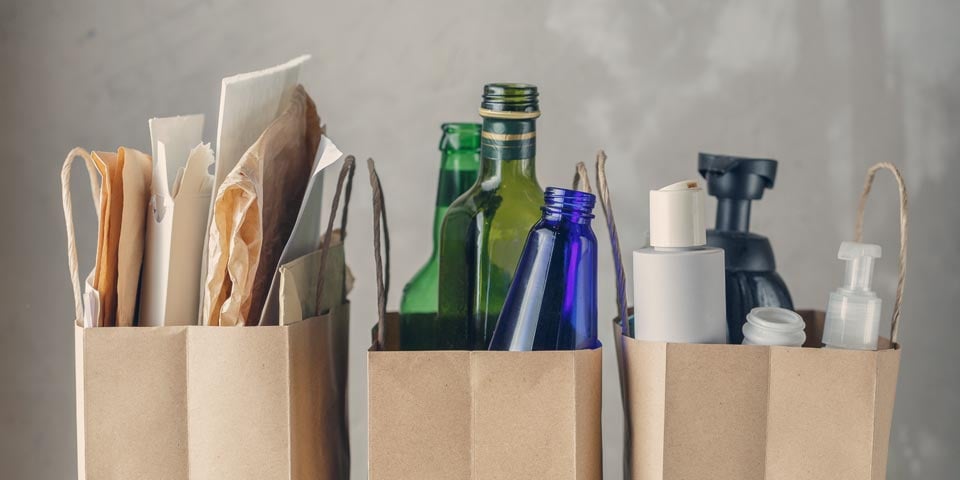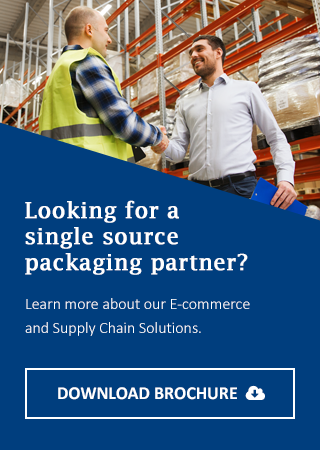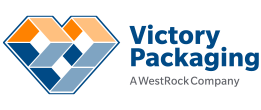
Keeping up on your recycling in a workplace or busy home can seem needlessly complicated. Not all packaging is created equal, but with our handy recycling cheat sheet, you can ensure that your office or kitchen always has a properly sorted recycling bin.
See below for an easy reminder of what should be included as well as three ways that major beverage companies are updating their packaging sustainability and supply cycles.
Recycling Cheat Sheet
Plastic
The Plastic Resin Identification Codes found on plastic products range 1 through 7 and are an easy way to check if they are economical to recycle.
Recyclable: 1 & 2 resin codes are found in beverage bottles and milk jugs. They are accepted in curbside recycling programs and are great for recycling.
Not Recyclable: 3-7 resin codes are typically found in personal care products, clear wrap in food packaging, ketchup bottles, medicine bottles and takeout food packaging. Unfortunately, plastics with 3-7 resin codes are not economical to recycle.
Glass
Glass food and drink containers are very recyclable. Since most recycling systems will separate colored and clear glass bottles, you don’t need to worry about it.
Batteries
While most batteries are recyclable, you shouldn’t just toss them in your bin. For your typical batteries – AA, AAA, C, D, etc. – large retail stores will likely have a recycling bin at which you can deposit them. For car batteries, call your closest auto shop that sells batteries. They will likely take them off of your hands to recycle.
Oil
Similarly, motor oil can be handled by your local garage or auto shop. So instead of pouring it down the drain, see if they will take if for you.
Paper and Cardboard
If only paper and cardboard had an easy numbering system like plastic. However, an easy way to remember what is and isn’t recyclable is that paper or cardboard that’s been in direct contact with food likely cannot be recycled.
Recyclable:
- Newspaper
- Magazines
- Catalogs
- Paper bags
- Wrapping paper
- Soft-cover books
- Telephone books
- File folders
- Paper cups
- White and colorful paper
- Copy paper (Staples are OK)
- Envelopes, including window envelopes
- Corrugated cardboard boxes
Not Recyclable:
- Paper towels or tissues
- Napkins
- Soiled paper plates or cups
- Plastic or wax-coated paper
- Candy bar wrappers
- Photopaper
- Hardcover Books
With a better understanding of how you can better organize your recycling plan, let’s see how three major brands have updated their packaging sustainability.
How Three Major Beverage Brands Are Altering Their Packaging Plans
Naked Juice, a PepsiCo subsidiary, recently switched to a 100% recycled plastic bottle package for its full range of smoothies. This makes them the first retail smoothie/juice brand in the UK to use 100% recycled plastic bottles.
SodaStream, the at-home sparkling water machine, has partnered with reverse vending machine manufacturer TOMRA to install kiosks in grocery stores throughout the US and EU so customers can seamlessly return their empty CO2 cylinders. The kiosks will help streamline the return process – eliminating the need to visit customer service desks – while keeping the cylinders in a closed loop so SodaStream can clean, fill and seal returned cylinders for reuse.
As part of an effort to eliminate one billion straws each year, Starbucks is rolling out its new lightweight, recyclable strawless lids throughout the US and Canada. The new lids will be for all iced coffee, tea, espresso, and Starbucks Refreshers® and Starbucks claims they contain 9% less plastic than the previous lid-straw combo. Starbucks’ director of global packaging solutions and innovations says that the company plans to halve its landfill waste production by 2030.
At Victory Packaging, we are also committed to improving sustainable packaging solutions and overall operations. To learn more about the steps our teams are taking and how your company can be a part of our growing movement, visit our sustainability section.
